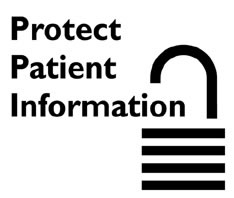Being a Christian refugee in this part of the world is a dangerous affair.
Unlike in America, where counting oneself a Christian is increasingly perceived as a designation that affords privilege, sometimes to an unfair degree (I have my doubts on that one), there is no question that the opposite is true in much of the Middle East.
It is easy to see that militant Islamists are actively focused on the eradication of Christianity in at least “Muslim” lands, if not the whole world. This is true to some degree in the refugee camps as well.
Even still, many of the refugees we worked with this week are either committed Christians, or are actively exploring the faith.
The stories of how these people came to their decisions for Christianity vary widely, but most are eye-opening. Few in the Middle East can come to Christ as easily and risk-free as nearly every American can if they wish. Apostasy from Islam is often regarded as an offense punishable by death.
One man I saw this week was openly wearing a prominent silver and gold cross around his neck. I didn’t notice it at first, but as I was listening to his heart with my stethoscope the bright golden object swinging in front of me was suddenly hard to miss.
 Realizing I wasn’t in America, where crosses are so ubiquitous they’ve become a little trite to me, I exclaimed, “You’re wearing a cross!”
Realizing I wasn’t in America, where crosses are so ubiquitous they’ve become a little trite to me, I exclaimed, “You’re wearing a cross!”
“Yes,” he nodded.
I pondered the implications of wearing that specific symbol in the Islamic world. A cross is better described as cross-hairs for a man like him. Yet he wore the symbol proudly, unapologetically. Should our roles be reversed, would I have the same courage?
“You are a Christian then.” I said, continuing in my new role of Dr. Redundant.
“Yes.” He nodded again, smiling.
Through my translator, I learned that a few months ago in Iran he was awoken in the night by the figure of a man calling him to follow Christ. He said he was convinced that the man speaking to him was Jesus, the Son of God. He knew almost nothing of the Christian faith, as he was raised a Muslim.
Still, upon waking the next day, my patient committed himself for following Christ. He felt he had to do this. It was an inner compulsion; he had been called to a new faith, a new life, no matter the cost to him.
But it was indeed a ‘costly’ decision. Read anything about the Islamic regime of Iran (I recommend the the wonderful autobiography Persepolis as a cursory intro if interested), and you will know that the government of Iran is itself a religious organization. Along with typical functions of any secular government, like providing running water, working roads, electricity and health care (which in many instances, the Iranian government does quite well), it also enforces a highly conservative interpretation of Shia Islam.
How do they enforce such a thing, you ask? How do you get a nation of 77.5 million people to follow extremely strict religious rules? How can you enforce an entire nation to put every woman in robes and headcoverings, to allow no music, no dancing and to enforce frequent observance of Islamic practices like 5x daily prayer?
With “religious police” of course!
As a kid from the suburbs of America, following a Christian faith I was always free to reject, it took some reading and imagination for me to even comprehend such a notion.
It was only in 1979 that the Iranian Revolution took place. Prior to that, Iran probably looked much more like America than it does today. But in ’78-’79, things changed dramatically, as that was the year of the Iranian Revolution. It was then that the Pahlavi dynasty, led by Mohammed Reza Shah Pahlavi was overthrown by the Islamic Republic.

The Republic was initially a political movement, comprised of a collection of leftist thinkers, activist students and numerous Islamic movements. It was led by a powerful Islamic leader named Ruhollah Khomeini, a scholar, author, politician and political revolutionary.
After the Shah was forced from power, to the surprise of nobody, Khomeini was designated as the Supreme Leader of Iran. However, TO the surprise of many, Khomeini was given final authority on both political and religious matters.
The irony of this transformation is hard to miss. Criticism of the Shah centered around how difficult it was for the commoner to be heard. The Shah’s rulership was a dynastic monarchy, with power passing from father to child generation after generation. This meant that nobody could rise from, say, a community organizer and member of a minority comprising 13% of a nation’s population, like Barack Obama, to the highest position of power in the land (Huzzah! Huzzah! Democracy!).
Yet the solution to this problem that emerged in Iran was the Islamic Republic, which consolidated both political and religious power in one man. The power of the rulers of Iran was, effectively, broadened as a result of the revolution. The “little people” never got their say. And, I suspect, many of those who supported the Revolution experienced colossal disappointment. Power just went from one ruling class to another. To this day, a Khomeini rules Iran.
Some version of the above rushed through my mind as I stared at the cross hanging from my patient’s neck. An Iranian, 4 months in Greece, wearing a bright silver and gold cross. Wow.
As it turns out, the father of this man was a member of this religious police force. This patient had chosen to convert from Islam to Christianity as the son of a man who is tasked with enforcing and promulgating Islam in the country. More irony.
Imagine the shame on their family for such an act! Aside from endangering himself, my patient was possibly even endangering his own father (and mother).
Many immigrants come to Europe because they think it is rich, with jobs and money flowing like wine at a wedding party. Increasingly, they are finding that Europe is no utopia. Millions are unemployed. Millions are poor. Upward mobility is rare.
But one reality of Europe is that it does remain a place where you can follow a religion in nearly any any way you choose, to include no religion at all. Say what you will about the EU, but it remains a place of tremendous religious freedom, rivaled perhaps by only the U.S.
So it is understandable that this man left Iran. But it is still amazing that he was willing to do it. He left with nothing. No family, no friends. He slunk away in the night, alone. As the son of an important man, his life had no doubt been comfortable and safe. He upended all of that.

My patient arrived at the Pireaus Port of Athens after crossing the Agean Sea from Turkey. He arrived nearly destitute, having given most of his money to a trafficker to get him to Greece. I think he slept on the concrete sidewalk the first night.
The next morning, he says he prayed that the God of his new faith would spare him, and shortly thereafter was approached by members of a Christian church in Athens who offered him a bottle of water. It was through this church that I met him.
 Greek authorities soon placed this man in the Elliniko refugee camp, where he made no secret of his faith, sharing it with any around him who would listen. Not long after his arrival, a riot broke out in the camp with Muslims targeting Christians.
Greek authorities soon placed this man in the Elliniko refugee camp, where he made no secret of his faith, sharing it with any around him who would listen. Not long after his arrival, a riot broke out in the camp with Muslims targeting Christians.
The violence carried on for quite some time, as Greek police made no move to stop it, one even pointing out that if some of the refugees died, “there will be fewer of them for us to deal with.” My patient was beaten severely in the melee.
It is inhumane, of course, for anyone to think as these police did. But their attitude is understandable nonetheless. Would you wade into the middle of that mess?
Somewhere in this story, my patient picked up his cross. I don’t know if it was in Iran or somewhere in Athens. But he wears it daily. It is not merely jewelry to him, given at some Christmas party. It wasn’t bought from one of the ubiquitous Christian Book Stores in America, with every possible permutation of “cross trinkets” available for sale. It was bought for a price; worn for a higher one.
This isn’t necessarily a Christian story, although as a Christian I find it inspiring. But from this anyone can recognize the deep human desire to worship in freedom. This man’s life story is a reminder that people are willing to die for the right to think and act honestly in relation to their understanding of the divine.
The cross symbolizes the reality of this man’s beliefs, even if that symbol marks him for suffering or even death. Would that all Christendom be so committed. Would that all who cherish freedom be so as well.


 Hopefully, they can learn a bit about medical care in a refugee and/or underserved situation. As their lives are largely consumed with cheerleading, skinny jeans, teen-lit, French horn, Cello, soccer and boyfriends (ex…EX boyfriends), this might be quite an eye-opening experience for them. I hope so.
Hopefully, they can learn a bit about medical care in a refugee and/or underserved situation. As their lives are largely consumed with cheerleading, skinny jeans, teen-lit, French horn, Cello, soccer and boyfriends (ex…EX boyfriends), this might be quite an eye-opening experience for them. I hope so. It should be mentioned that most relief agencies don’t actually do any of this, even the good agencies who actually help people (lots of them are there for the photo-op and little else, it seems). I received some generous help from a professor at the London School for Hygiene and Tropical Medicine prior to my last trip, and he noted only a small number of agencies who provide care AND do good, statistical research on the populations they serve.
It should be mentioned that most relief agencies don’t actually do any of this, even the good agencies who actually help people (lots of them are there for the photo-op and little else, it seems). I received some generous help from a professor at the London School for Hygiene and Tropical Medicine prior to my last trip, and he noted only a small number of agencies who provide care AND do good, statistical research on the populations they serve.

 In another post, I will describe why throwing antibiotics toward a cough with no evidence of bacterial involvement is absolutely catastrophic for the long-term survival of the human species. That statement is a rare instance on this blog where I’m not stating hyperbole, either.
In another post, I will describe why throwing antibiotics toward a cough with no evidence of bacterial involvement is absolutely catastrophic for the long-term survival of the human species. That statement is a rare instance on this blog where I’m not stating hyperbole, either.



